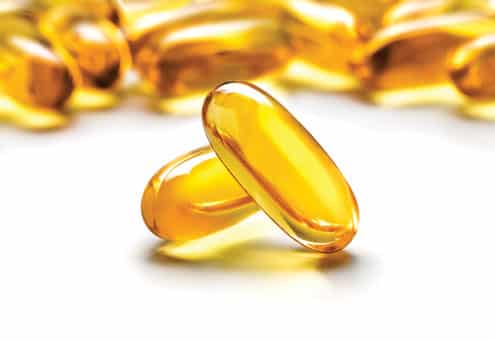STRONG IMMUNE SYSTEM
As our pets enter the outside world they become exposed to a wide range of new threats of disease and infection. Socialising with other animals and encountering foreign substances challenge the immune system but also educate it. Vaccines and therapeutic drugs provide essential support however, our pets’ diet plays a major role in enabling them to resist and overcome immune challenges themselves.
ADOLESCENCE
The greatest risk of infection and illness occurs shortly after birth, as the body’s immune system has yet to develop and the new-born animals are exposed to new challenges.
Puppies and kittens are born with a basic immune function which they inherit via the antibodies transmitted from their mothers during gestation. This is further supported by the immunoglobulins ingested from their mothers’ milk. This gives them the ability to fight initial challenges from viruses, bacteria and foreign substances.
However, this support is short, and they need to quickly develop their own immune system to fight further challenges. Puppies and kittens are particularly vulnerable during this immunity gap period and nutrition plays an important role in establishing their new defence mechanisms.
 PROTECTIVE BARRIERS
PROTECTIVE BARRIERS
The body’s initial line of defence is its external surfaces, such as skin and mucous membranes. Both provide protective barriers to inhibit the ingress of harmful substances, and are effective in repelling the majority of bacteria and viruses. The mucous membranes, such as those found in the lungs and digestive tracts, bind harmful substances and prevent them reaching the blood.
The membranes also contain cells that specifically target and destroy foreign proteins. Any cuts to the skin or damage to these mucous membranes can allow these bacteria and foreign proteins to enter the circulatory system, where they can multiple and establish disease and infection.
Nutrients such as chelated zinc and biotin can help to maintain the integrity of the skin, whilst prebiotics and functional fibres, such as MOS and psyllium, promote a healthy intestinal mucosa.
THE IMMUNE RESPONSE
Specialist phagocytes, called macrophages, are the body’s infantry soldiers that provide an initial response to infection. They are activated in response to the presence of antigens and attack and digest foreign invaders , after which they are transported to lymph nodes where they attach to B and T lymphocytes. The B cells then begin producing specific antibodies against the antigens the body is exposed to. These antibodies also trigger responses from other immune cells, causing them to attack and kill the intruding bacteria. Helper T cells act as signallers to direct the antibodies and killer T cells to the infected area. Together, this chain reaction provides the body’s primary (innate) and secondary (adaptive) immune response.
 INFLAMMATION
INFLAMMATION
This inflammatory response is controlled by omega-6 and 3 fatty acids, which are primarily provided via the diet. It is therefore important to provide a good dietary supply of both fatty acids, via vegetable and fish oils, to support an effective inflammatory response. Otherwise inflammation cannot be controlled, which can further exacerbate the infection.
FAT SOLUBLE VITAMINS
These three fat soluble vitamins A, D and E are essential for the correct functioning of the immune system. Vitamin A is involved in the functioning of phagocytes and the activation of T- and B-lymphocytes, and so is essential for the body’s ability to learn from new threats. It is also essential for the maintenance of healthy mucous membranes, which are the body’s first layer of defence. Vitamin A is generally added to the diet to ensure a plentiful supply, but can also be found in ingredients such as animal fats and proteins.
Vitamin E is an antioxidant vitamin, that primarily exists in cellular walls, where it protects cells from damaging by-products of infections. It is also important in the production and function of lymphocytes, and an increase in dietary vitamin E has been shown to boost their levels.
Vitamin D modulate the activity of T- and B-lymphocytes and other immune cells, to ensure that their actions are appropriate and in control. Vitamin D deficiency can produce an overactive immune system. It is also important for the movement and targeting of macrophages, as well as their ability to fight certain bacteria.
WATER SOLUBLE VITAMINS
Vitamins B6, B12 and folic acid are essential for cellular metabolism and multiplication, and so are necessary for the generation and activity of immune cells, such as phagocytes. Thiamine and vitamin B1 are also important for the maintenance of the body’s external barriers, and so helps to protect against initial infections. Vitamin C is also an important immune vitamin. Its antioxidant actions, particularly within white blood cells, helps to destroy foreign bacteria, and a deficiency has been linked with immune suppression.
Healthy dogs and cats are able to generate sufficient vitamin C within their bodies however, in cases of illness or recuperation, its synthesis can be impaired and dietary supplementation can be beneficial.
MINERALS
Almost all minerals contribute in some way to the body’s immunity. Iron, zinc, selenium and copper are particularly important in that they are central to a number of antioxidant enzymes that help to protect the body from free radicle attack.
These free radicles, which are natural by-products of metabolism, target and damage sensitive organs and tissues in the body, such as the reproductive organs, heart and brain.
Antioxidant enzymes directly neutralise these substances, as well as protect organs and tissues from further attack. These minerals also form part of enzymes that influence the primary and secondary immune responses, and their deficiency can reduce the effectiveness of the immune system.










